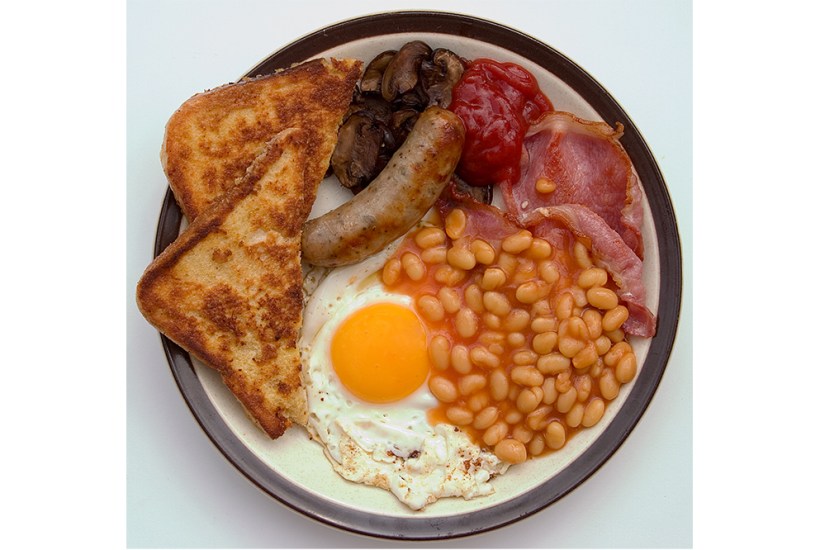No compromise
Sir: Kate Andrews is quite right to identify ‘short-termism’ as the cause of so many of our national failings (‘Raac and ruin’, 9 September). It is a systemic problem rather than a human one, requiring constitutional reform to put right. Rishi Sunak, Keir Starmer and their colleagues are, like the rest of us, far from perfect but they operate within a system which makes long-term thinking and compromise (other than with the extreme wings of their parties) almost impossible. Following the next general election, the victors will celebrate on the steps of No. 10, but it will inevitably end in tears. The British people deserve better.
Roger Burgess
Lodsworth, West Sussex
Signs of the times
Sir: Kate Andrews’s otherwise excellent piece on our crumbling infrastructure could have included a nod to the appalling and shabby state of our roads infrastructure. I am an 82-year-old motorist, not totally comfortable with Google maps, and I have always looked to road signs for confirmation of my route when driving on motorways and major roads around London. That has now become a problem.
Road signage is in a terrible state of decay. Many signs are obscured by overhanging foliage, which it seems is no longer cut back by local authorities. They are also extremely dirty and, if not covered in graffiti, have a coating of green mould indicating their neglect. Along with potholes and faded white lines, they are a sad reflection of Britain today.
Timothy Downes
London E11
Kew balls
Sir: Rod Liddle is right to question what’s going on at the Royal Botanic Gardens, Kew (‘Right-on Kew’, 9 September). In 2021, Kew announced its wide-ranging and highly political manifesto on the ‘decolonisation’ of plants, rowing back only when there was an outcry. Kew’s role, limited by statute, is science, not politics, and upon that its stellar global reputation depends. Recently, it has announced the intention to move the seven million pressed-plant specimens to a science park on a floodplain outside Reading, at a cost of between £50 million and £100 million, largely to be borne by the taxpayer. This has dismayed scientists at Kew and eminent botanists all over the world, who know that they need live and dead specimens together for effective research. To move the latter 40 miles from the former is bonkers. Now visitors to the gardens will be treated to a series of events called ‘Queer Nature: Celebrating diversity in art, plants and fungi’. Saying that plants are ‘queer’ and implying that this is in some way analogous to controversial contemporary theories of human sexuality has no scientific basis. All plants are set on procreation, not ‘queer joy’. If the public receives the impression that plants are somehow LGBTQ+, the exhibition will have done a serious disservice to objective science. It is more than high time that Lord Benyon, minister of state at Defra, with oversight of Kew, intervened to stop this nonsense and the progressive trashing of the reputation of a global centre of scientific excellence.
Ursula Buchan
Diploma in Horticulture (Kew)
Glapthorn, Peterborough
To bean or not to bean
Sir: Rory Sutherland’s conundrum regarding baked beans and hash browns (The Wiki Man, 9 September) in a ‘full English’ was dealt with comprehensively in the correspondence pages of the Times a year or so ago; beans are acceptable if – as Sutherland recommends – they are cordoned off. For me, the real issue is the strange death of fried bread: perfect for mopping up yolk, tomatoes, mushrooms. So where has it gone? Include hash browns if you must – we are inclusive, after all.
Richard Routledge
Singapore
Grand designs
Sir: Many names were checked in Dorian Lynskey’s review (Books, 9 September) of Toby Benjamin’s Withnail and I: From Cult to Classic. Alas, these did not include that of the production designer who successfully fulfilled the screenplay’s instruction to see that: ‘Everything looks ill. The walls and furniture look ill. Daylight looks ill.’ To give credit where it’s due, this gifted technician was Michael Pickwoad (1947-2018), who was later to make an arguably greater mark with his visual creation of the alien worlds of Doctor Who between 2010 and his death.
Christopher Gray
Oxford
Arabian gulf
Sir: Kapil Komireddi accurately portrays Britain’s lack of understanding of and engagement with India for at least the last 25 years (‘The special relationship’, 2 September). His argument can be broadened to include the Middle East. The Foreign Office still has an enviable depth of experience furnished by a sadly dwindling band of Arabists. This century their counsel has been largely ignored as foreign policy decisions are increasingly made in Downing Street by politicians with short-term agendas. It is not in Britain’s interests to shun such expertise.
Christopher Bellew
London W6
Pregnant with meaning
Sir: Toby Young’s account of his recent medical examination (No sacred cows, 9 September) reminded me of being assessed for fitness to join the Officer Training Corps at university as a slightly chubby student in 1982. The RAMC officer was clearly ahead of his time when he asked if I might be pregnant. Either that, or he was poking fun at me. Perhaps I should have sought a safe space?
Jon Bridges
Solihulla
Got something to add? Join the discussion and comment below.
Get 10 issues for just $10
Subscribe to The Spectator Australia today for the next 10 magazine issues, plus full online access, for just $10.
You might disagree with half of it, but you’ll enjoy reading all of it. Try your first month for free, then just $2 a week for the remainder of your first year.








Comments
Don't miss out
Join the conversation with other Spectator Australia readers. Subscribe to leave a comment.
SUBSCRIBEAlready a subscriber? Log in